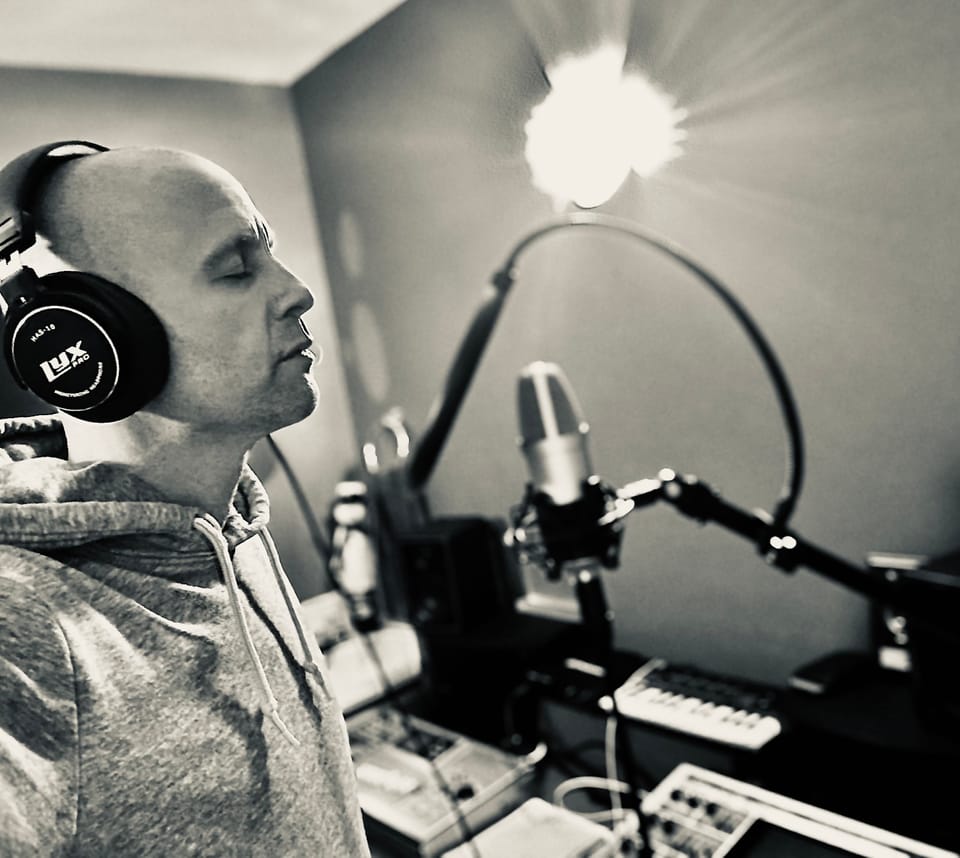From Hiatus to Hits: J.Dow's Remarkable Return to Music

In the vibrant music scene north of Chicago, in the city of Zion, Illinois, a story of resilience and artistic rebirth is unfolding. J.Dow, born John Dow, isn't just making music—he's crafting a comeback story that resonates with anyone who's ever set aside a dream only to rediscover it with renewed passion.
"I wasn't making music for years until about 6 months ago," Dow reflects, sitting in his home studio where the magic happens. "Now I'm seeing more growth in my music and fanbase than I ever have before." His voice carries the quiet confidence of someone who's found their way back home.
This return to music wasn't planned. Like many artists, Dow had stepped away from the mic, letting life take its course. But creativity has a way of refusing to stay dormant. His musical roots run deep, shaped by an eclectic mix of influences ranging from the intricate harmonies of Bone Thugs-n-Harmony to the raw energy of System of a Down and the laid-back reggae vibes of Stick Figure.
What sets Dow apart in today's music landscape isn't just his diverse musical palette—it's his authenticity. In an era where many artists carefully calculate their every move, Dow embraces spontaneity. "My creative process just flows," he explains. "I don't overthink it. I let whatever happens happen in the moment." Sometimes, he adds with a hint of pride, "it just takes one beat or song to get me going. Once I feel it, it's game over and I sort of blackout!"
His collaborative resume reads like a who's who of the industry, having worked with heavyweights like Twista, YBN Nahmir, and Bizzy Bone. But even with these impressive credentials, Dow maintains a refreshingly grounded approach to his craft. He navigates the modern music landscape with ease, embracing the digital age where collaborations happen across continents through file sharing and virtual studios.
A typical day for Dow starts early. He still maintains a day job—a fact he shares without pretense, adding "until my music takes off" with a knowing smile. But it's the evening hours in his studio that truly energize him. This is where beats come to life and lyrics flow freely, though he admits with a laugh that writer's block can sometimes be "a bitch."
Perhaps most striking is Dow's relationship with his fans. In an industry often criticized for its disconnect between artists and audiences, he takes a different approach. "If they like me enough to listen and pay for my music, then I have all the time in the world for them," he states firmly. "Let's be honest, if there's no fans, then I don't exist."
The journey hasn't been without its challenges. Dow notes how performance anxiety has evolved with age—a reminder that artists, too, grow and change. "When I was younger, I never dealt with performance anxiety. I would just perform," he recalls. "I think as we age and mature, we tend to overthink more."
But it's precisely this kind of honest reflection that makes Dow's story so compelling. In a industry often dominated by carefully curated images and calculated personas, his transparency is refreshing. His music carries no hidden meanings or complex subtexts—just pure, unfiltered expression from heart and mind to mic.
Looking ahead, Dow radiates optimism. "It's crazy where life can take you," he muses. "I'm the happiest I've been in years, especially making music." His eyes light up when he talks about future projects, and it's clear that this second chapter in his musical journey might just be his strongest yet.
For aspiring artists facing their own doubts and setbacks, Dow's message is simple but powerful: "Don't give up." It's advice that might seem cliché, as he readily admits, but his own story serves as living proof of its truth. In an industry that often celebrates overnight success stories, J.Dow represents something more authentic—the power of returning to your passion and letting it flow naturally, one beat at a time.
As the sun sets over Zion, Illinois, J.Dow heads back into his studio, ready for another session of creating what he loves. His story isn't just about making music; it's about rediscovering your voice when you least expect it, and having the courage to let it be heard once again.